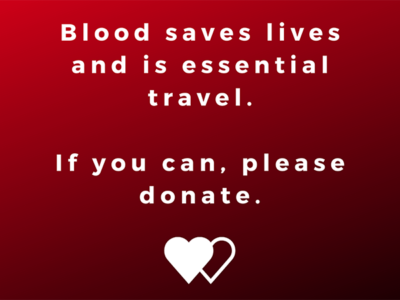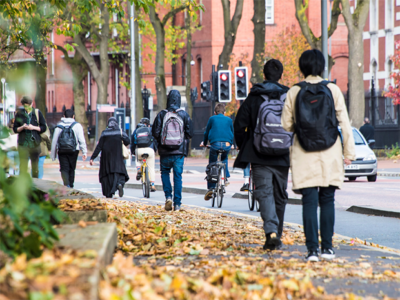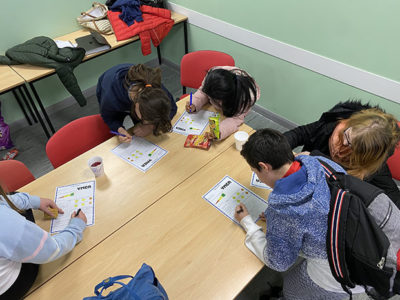Most of us think about getting the family together at Christmas – so did the Davis family and they’re thankful they did. Yet, they were not smiling and joining in the dulcet, tuneful singing of the carols.
Instead, tears streamed down their forlorn faces. They were sat in hospital A&E. For, the head of the clan, 87-year-old Ernest James Francis, lay in purgatory just a few corridors away.
Finally, a doctor entered the family room. “Mrs Davis, the transfusion has been successful. You can see your father now,” the doctor said.
Mr Francis had been rushed to hospital on December 24 2011 after a stomach ulcer burst suddenly. He lost significant amounts of blood. The blood transfusion saved his life.
Declining donor figures
In England alone, about 8,000 blood transfusions are carried out every day. January is traditionally the busiest month for donors as people honour New Year’s Resolutions however only four per cent of adults are currently donors, a figure on the decline.
Consequently, more and more people are losing their lives because of a lack of blood donors in the UK. Mr Francis was fortunate. Naomi Davis, his granddaughter from Cardiff, said: “It is so significant people carry on giving blood. My granddad lost so much blood so, without that donation, he would not have lived. It is as simple as that.”
Rich Gorman, a PHD student in Cardiff, is one of about 6,000 haemophilia sufferers in the UK. Haemophilia is a bleeding condition. Mr Gorman’s blood does not produce the essential chemical Factor VIII, which is crucial to allow blood to clot when you cut or injury oneself. A blood transfusion would, in some circumstances, save his life.
“When I start bleeding, it takes a long time for me to stop bleeding. I don’t bleed any more than a ‘normal’ person, I just bleed for a lot longer. So if am hit by a bus or something tragic like that, then it would take a lot, a lot of time for the bleeding to stop. Obviously during that time, I might perhaps need topping up with some blood from a blood bank,”
The Welsh Blood Service (WBS), however, reject the notion that our blood banks are drying up. They collect blood donations from the general public across South, West and mid-Wales. Publicity and marketing manager Tracy Sampson said: “The big thing for us is regular blood donation and encouraging young donors to come forward and we do that, I would say, reasonably well. So there has never been a position where there is absolutely no blood in the blood bank.”
Instead, the WBS claim that there can be problems with particular blood groups as a pose to general blood resources. Only two per cent of the UK population, for instance, have the B- blood group.
“If there is a position where stocks are low and we are struggling at that time to reach that demand for a particular blood group, we have an agreement with our other UK services that we will actually import blood from them if they’ve obviously got it to support us at that challenging time,” said Tracy Sampson.
This is scant consolation for the thousands of us waiting for blood transfusions or, even, likely to ever need one. Rich Gorman is particularly concerned.
The Cardiff University student, 24, said: “Everyone produces blood really easily everyday and it doesn’t hurt or cost anyone to donate anything. It is not like perhaps an organ donation when you donate half your liver and then you’ve only got half a liver or one kidney for the rest of your life.”
Is there a stigma?
Clearly, the dire need for new blood donors couldn’t be emphasised enough. The traditional January rise in donors has not happened this year. Something needs to be done.
Global ethicist Georgina Shackell-Green believes the public perception of donating blood should change. She is worried about the stigma that is often associated, she feels, to giving blood.
“I don’t think it makes sense and I think everyone should do their bit. After 9/11 for example, there were queues at American hospitals for blood drives and I think it should always be like that. I think in that instance there was something really nice about how people put themselves out,” said Miss Shackell-Green.
The WBS acknowledge they understand a lot of people are afraid of needles and have a fear of the unknown. However, some of those who are keen to donate blood are not allowed to do so.
“It could be that there iron is not high enough or they have travelled, which will restrict them for a short period of time,” said Tracy Sampson.
Mr Gorman, who is a severe haemophilia sufferer, believes there are some double standards in what blood donation services say one cannot do. He said: “Screening technology is a lot better and there seems to be some double standards in that a gay man who practices completely safe sex or who is even abstinent isn’t allowed to donate blood but a straight female who isn’t practicing safe sex can donate blood. So, I think the rules should perhaps be looked at. I have quite a lot of gay friends who would be up for donating blood but aren’t allowed to.”
The Davis family were fortunate that fateful Christmas Eve. Sadly, so many people aren’t. Blood donors are falling. Donation rules may need to change, the stigma associated with donations may need to change, something needs to change.
WBS’ Tracy Sampson said: “If you walk through the childrens’ cancer ward at University Hospital Wales and see the amount of difference blood makes to people’s lives, you would roll up your sleeve at the end. It really does help people in our community.”
To find out where and when you can give blood, visit http://www.welsh-blood.org.uk/ or call 0800 25 22 66.





